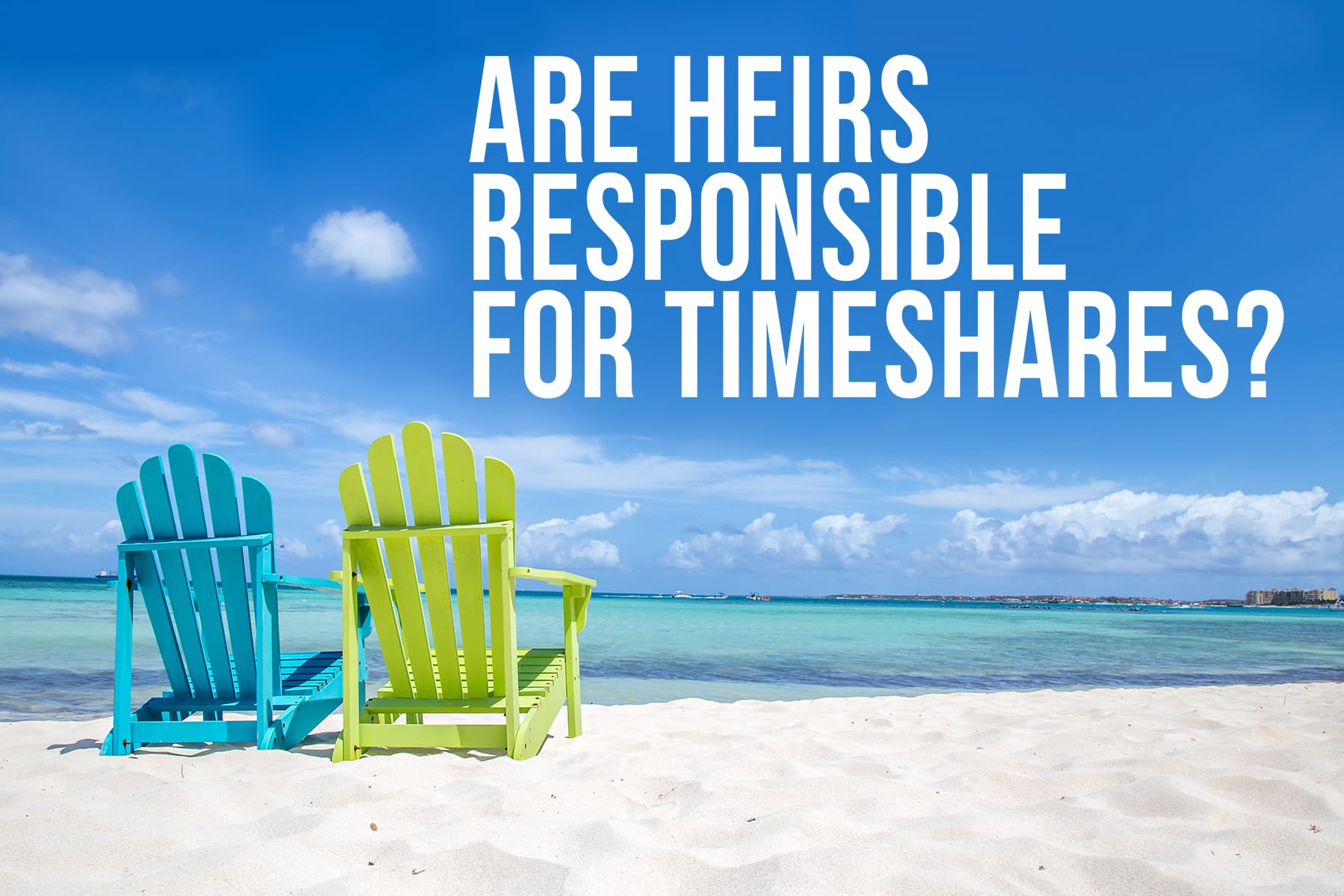Table of Contents
Owning a timeshare property was a smart move at first. But when the costs add up and payments fall behind, foreclosure becomes a real possibility. If you’re in that situation, you’re likely wondering how long a timeshare foreclosure will stay on your credit and what kind of impact it will have. This guide eliminates the confusion and gives you the facts you need to protect your credit and regain control.
How Does a Timeshare Foreclosure Affect Your Credit?
A timeshare foreclosure can lower your credit score significantly, and the hit usually shows up fast. Credit bureaus treat this foreclosure type much like any other mortgage default. It signals to lenders that you didn’t meet your payment obligations, which makes you a higher risk.
Once reported, a foreclosure becomes a negative mark on your credit report. This can affect your ability to get approved for credit cards, personal loans, or even rental housing. Lenders see a history of foreclosure and may hesitate to extend credit or may offer terms that come with high interest rates and low limits.
Even if your financial situation improves, the presence of a foreclosure can slow down your recovery. It’s more than just a missed payment. It’s a red flag that can follow you through multiple financial decisions unless addressed properly.
The Timeshare Foreclosure Process
When you stop making payments on your timeshare, things rarely go quiet. The timeshare foreclosure process that follows can move quickly, and the sooner you understand it, the better prepared you’ll be.
At first, the timeshare company will likely contact you directly to try to collect the overdue amount. Those attempts can turn into formal notices if you continue to miss payments. Some developers may turn your account over to a collections agency or report the delinquency to credit bureaus before the foreclosure process even begins.
Eventually, if no resolution is reached, the company may initiate foreclosure. This step varies by state and by company, but the result is often the same: a lasting mark on your credit report and a serious impact on your credit history.
Knowing what to expect doesn’t make it less stressful, but it does give you the power to act before things escalate.
Duration of Timeshare Foreclosure on Credit Reports

Once a timeshare foreclosure is recorded, it doesn’t disappear quickly. Credit bureaus typically keep foreclosure records on file for a set period, and during that time, your credit profile reflects the impact.
Here’s what you need to know:
- A foreclosure can remain visible on your credit report for several years.
- The exact duration depends on the bureau, but the record tends to stick unless challenged or corrected.
- Even if your score improves over time, the foreclosure entry itself may still appear during credit checks.
This lingering presence can affect loan applications, insurance premiums, and other opportunities. While its influence fades gradually, it still sends a signal to lenders and credit reviewers.
How to Prevent a Foreclosure Before It Happens
If you’re starting to fall behind but haven’t yet faced foreclosure, now is the time to act. The earlier you address the problem, the more options you’ll have and the less likely your credit will take a lasting hit.
Start by reviewing your agreement. Look for any clauses that outline exit terms, transfer options, or payment relief in hardship cases. Then, contact the timeshare company directly. Some resorts offer temporary forbearance or internal exit programs, though these are not often advertised publicly.
If you’ve already tried that route and still feel stuck, professional help might make the difference. A reputable timeshare exit company can walk you through your situation and determine the best way out. At Wesley Financial Group, our process is built around helping owners avoid foreclosure and regain control of their finances.
What are the Consequences of Foreclosing on a Timeshare?

Foreclosing on a timeshare can create severe financial strain. The consequences often extend well beyond a credit score drop. Lenders, landlords, and employers may review your credit report before making important decisions.
Here are the most common effects:
Credit Score Drop
A foreclosure can significantly reduce your credit score, particularly if it was strong to begin with. That drop may limit access to future credit.
Higher Interest Rates
Even if you’re approved for new credit after foreclosure, the terms will likely be less favorable. Expect elevated interest rates due to the increased perceived risk.
Difficulty Qualifying for New Credit
A recent foreclosure entry may lead some banks and credit card companies to decline your application entirely.
Debt Collection
If any balance remains after the foreclosure, you might face collection activity depending on the terms of your original agreement.
Emotional and Financial Stress
The impact isn’t only financial. Foreclosure can lead to prolonged stress, especially when rebuilding trust with lenders becomes an uphill battle.
The fallout doesn’t end with a single missed payment. Understanding the full scope of these consequences helps you prepare and respond before the situation worsens.
How Do I Remove a Timeshare Foreclosure from My Credit Report?

Removing a timeshare foreclosure from your credit report can be difficult, but under the right conditions, it’s possible. There’s no guaranteed solution, though some actions may improve your chances if pursued carefully and consistently.
Here are some potential steps to consider:
Dispute Any Errors
Mistakes happen. If the foreclosure listing includes incorrect dates, amounts, or details, file a dispute with the credit bureau.
Request a Goodwill Adjustment
If your payment history has improved since the foreclosure, consider writing a goodwill letter to the lender. In some cases, they may agree to remove the record voluntarily.
Continue Monitoring Your Credit
Keep an eye on your reports over time. Inaccuracies can appear later and may delay your progress if left unchecked. Regular reviews help you act fast when needed.
No strategy guarantees instant results, but steady, informed effort can pay off. Be especially cautious with companies that promise to “erase” a foreclosure in exchange for upfront fees. These offers are often misleading and risky.
Common Misconceptions About Timeshare Foreclosures
Misunderstandings about timeshare foreclosures are common and can lead to costly mistakes. One widespread myth is that a timeshare foreclosure won’t appear on your credit report. In reality, it often does. Credit reporting agencies frequently treat these foreclosures just like any other mortgage default.
Some believe that timeshare companies don’t report to the credit bureaus at all. While that may be true for a few, many do. Once the foreclosure is recorded, it remains on your file for years unless steps are taken to address it. Another misconception is that the impact is less severe because it’s not a traditional mortgage. That assumption can be damaging. A timeshare foreclosure can significantly hurt your credit score, reduce borrowing power, and slow financial recovery.
These myths can prevent owners from acting early or seeking the help they need. Understanding the truth helps you make informed choices and avoid letting misinformation make a tough situation worse.
Reach Out to Wesley Financial Group

If your timeshare is putting your credit at risk, now is the time to act. Foreclosure doesn’t have to define your future. Wesley Financial Group* has helped thousands of people successfully exit their timeshare obligations, and we may be able to help you as well.
We understand how stressful this process can be. That’s why we offer a no-cost consultation to review your situation. You’ll get honest feedback, clear next steps, and a ready team to advocate for you.
The connection between a timeshare foreclosure and credit score damage is real. Schedule your free consultation today and take the first step toward protecting your financial future. You deserve a clean break and peace of mind.
*Wesley Financial Group, LLC, and its affiliates, successors, or assigns are not lawyers or a law firm and do not engage in the practice of law or provide legal advice or legal representation. All information, software, services, and comments provided on this site are for informational and self-help purposes only and not intended to substitute for professional advice, legal or otherwise. Any information provided herein is subject to change at any time.

Over 50,000 families helped!
Find out if you can cancel your timeshare. Schedule a FREE consultation with timeshare cancellation experts now.
Get Rid of Your Timeshare
Schedule a FREE Consultation with one of our timeshare cancellation experts who have saved families over $635 million.










